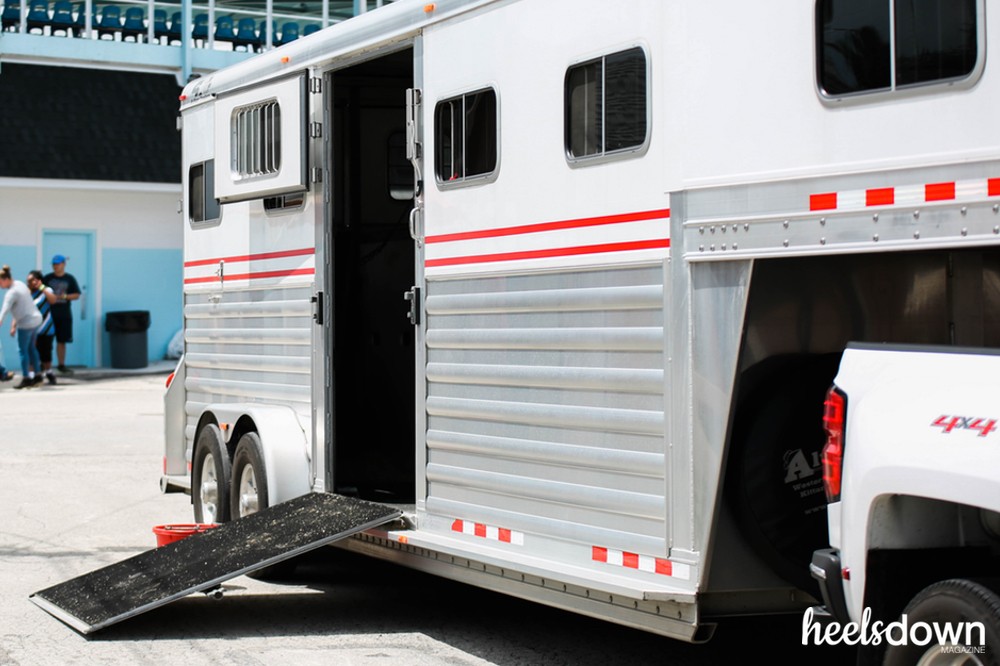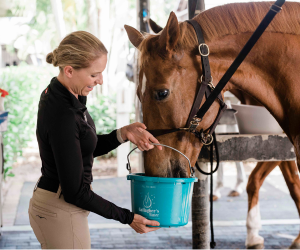Everything You Need To Know About the New Horse Hauling Requirements

So you’ve seen the headlines in your various feeds, and read some threads from horse people you know who are generally freaked out by new rules that could affect hauling horses in the U.S.
Before you panic, let’s break down what this actually means for you, the horse hauler.
Some background, please:
Back in 2012, Congress passed the “Moving Ahead for Progress in the 21st Century” bill, which among other things, required commercial hauling vehicles to use electronic logging devices. This device automatically records the numbers of hours a driver spends behind the wheel. It’s a shift from the longtime use of paper logs, and a surefire way to make sure drivers don’t drive when they should be sleeping, etc. So basically, it’s a win for safety.
But horse haulers don’t see it that way.
So how does this affect me and my horse trailer, you ask?
Horses are considered livestock, which is mentioned directly in the bill’s language. So if you have a commercial driver’s license to haul horses, you’re not exempt from these new regulations. If you don’t have a commercial license and don’t haul a trailer that weighs more than 10,001 pounds, you can breathe a sigh of relief.
All commercial vehicles were to be outfitted with these electronic logging devices by Dec. 18, 2017. A commercial vehicle is defined by the government as essentially a big ole’ truck that’s hauling 10,001 pounds heavy or more which is used on highways to transport passengers or property. This can also be a trailer and truck combo with a “gross combination weight rating” of 26,000 pounds. So basically, someone is making some money by hauling this heavy rig and the stuff inside.
Horse owners, who yes, operate trailers that can be pretty darn heavy, have gotten around this rule for some time by placing a “not for hire” sign in their windows. The problem with this is, if you’re hauling horses as a commercial shipper, or a barn owner with clients’ horses, or even as a professional to that could potentially be paid at horse shows, you’re technically being making moolah in some way by doing so. That means you’re not exempt from having the logging device.
Still confused? Answer these yes or no questions:
- Are you a professional trainer who uses a (10,001-plus pound) trailer for business purposes?
- Do you write off your truck and/or trailer as a business expense on your tax returns?
- Do you accept money from someone else when or if you trailer their horse? Even if it’s just for the cost of wear and tear?
- Are you hauling to a horse show where you intend to enter classes where you could win prize money?
- Do you have any sponsorships related to your horse trailer or trailering accessories?
If you answered yes to these questions, then yes, you are technically hauling what the government defines as a “commercial motor vehicle” which means you’ll likely need a logging device.
So what’s the deal with the logging device?
A driver of a commercial vehicle can only drive for eight hours straight before they have to take a mandatory 30-minute rest period. The new logging devices track for 14 hour periods, regardless of stops, and only 11 hours of that can be spent driving. Once a driver hits that 14-hour mark, they cannot drive again for 10 hours.
These electronic logging devices also track speed and if you keep driving through the mandatory rest periods. Violations are recorded and can be reviewed by proper law enforcement, which can result in fines or eventually the revoke of your license.
But wait, there’s hope:
It should be noted that the vast majority of horse owners who haul to horse shows or trail rides won’t be affected by this. But there are some exemptions from having to use an electronic logging device. If you’re hauling a 10,001 or more- pound trailer within a 100-mile radius, or you drive less than 12 hours at a time and return to the same location, if you drive less than 11 hours at a time when hauling or if you take 10-hour breaks between long hauls, then you could be exempt.
Some equestrian organizations, like the American Horse Council, are trying to buy horse haulers some time. They’ve asked the U.S. Department of Transportation for a one-year delay of enforcement.


